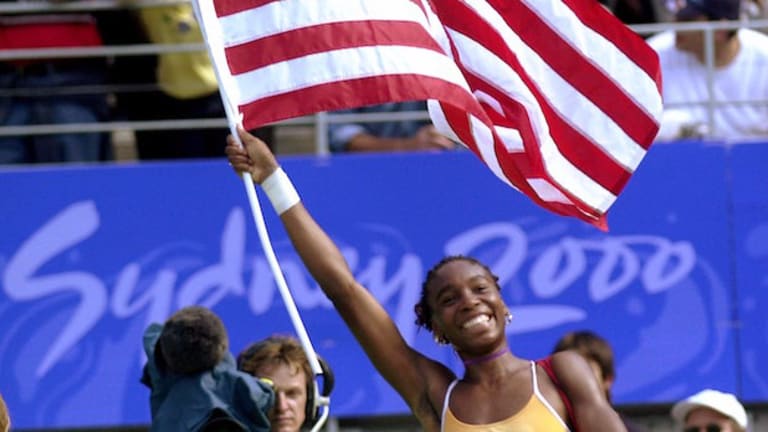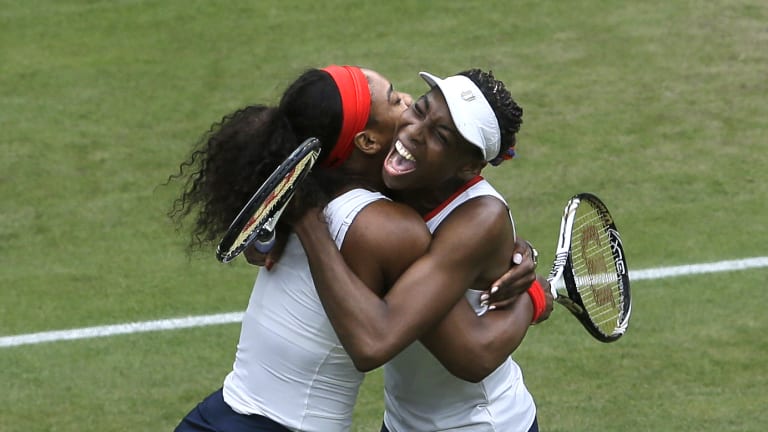Venus Williams, by all outward appearances, is the most unflappable of tennis players. Unlike her theatrically demonstrative younger sister, Serena, Venus doesn’t beat her opponents with fist pumps, stare downs or exultations. She uses something equally as daunting: a majestically stony game face that nothing can dislodge.
Well, almost nothing. Even after 20 demanding years on tour, there is one tennis-related topic that can make this 36-year-old veteran break into a mile-wide smile and giggle with the uncontrollable enthusiasm of a girl half her age: the Olympic Games.
Sixteen years after making her Olympic debut at age 20 in Sydney, Williams still describes the experience of playing for her country as “the pinnacle of my career,” and her four gold medals as “icing on the cake with a cherry on top.” The last time she played the Games, in 2012, it took some time before the normally reserved Venus could stop gushing.
“The Olympics was so great for me,” Venus said three weeks later. “To win [the doubles gold, with Serena] again, I really felt like it was the best moment of my career. Just felt amazing. Still very giddy about it.
“I don’t think it really started sinking in until the next day. I was walking through the airport, like, ‘Oh my God,’ and I just felt so emotional. I’m by myself looking like a teary nut.”
Venus wasn’t done talking about the Olympics; she never is. Asked where she stashes her gold medals, she brought up her favorite pastime at the Games: trading souvenir flag pins with other athletes.
“I have a pin bag dating back to 2000,” she said. “I keep a pin collection.”
Then she stopped and looked around the room; the tennis media, she realized, had heard her tell this story a few times before.
“I guess you all know that I collect pins,” she said, as the room broke up in laughter.
“I think eventually when my career is over,” Venus said of her pin bag, “maybe I’ll make something cool [out of it]. But for now I feel like I’m still adding.”
Tennis has always been Venus’ life, but it’s probably not an exaggeration to say that the opportunity to play tennis at the Olympics has added a significant number of years to her career. Age, injury, illness, the rise of her sister, the decline of her own once-dominant game, the daily grind of the tour: She’s survived it all by keeping her next trip to the Games front and center in her mind.

